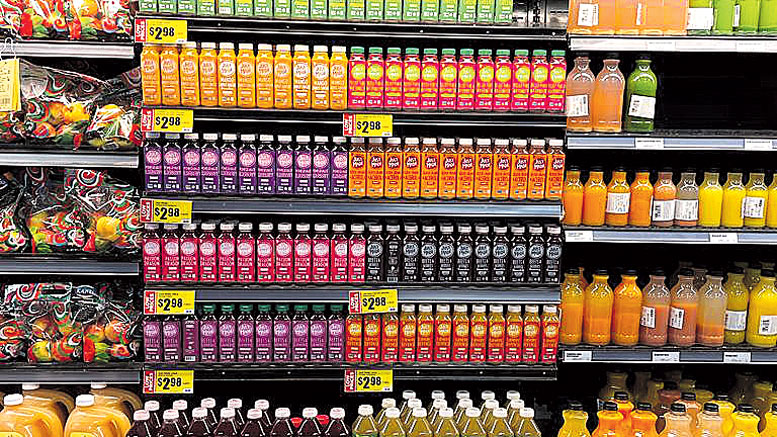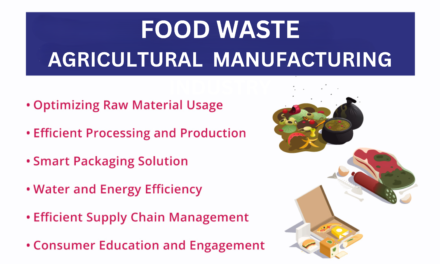The rise of functional beverages is reshaping the beverage industry by introducing a strong focus on health, wellness, and convenience. Functional beverages, enriched with vitamins, minerals, probiotics, antioxidants, and other health-enhancing ingredients, cater to consumers seeking targeted benefits such as improved energy, digestion, immunity, and mental clarity. Here’s how this trend is transforming the industry:
1. Diversification of Product Portfolios
- Impact: Beverage companies are expanding their product lines to include options like energy drinks, fortified waters, plant-based protein shakes, and kombuchas.
- Example: Traditional soda brands are launching functional alternatives infused with vitamins and adaptogens to capture health-conscious consumers.
2. Demand for Clean Labels and Natural Ingredients
- Impact: Consumers prioritize beverages with transparent labeling and natural, non-GMO ingredients over synthetic additives.
- Example: Functional drinks featuring ingredients like turmeric, matcha, or ashwagandha cater to clean-label preferences while offering perceived health benefits.
3. Integration of Innovative Ingredients
- Impact: Ingredients such as CBD, nootropics, prebiotics, and plant-based proteins are gaining traction for their specific health benefits.
- Example: Drinks infused with CBD claim to promote relaxation and stress relief, while nootropic-enhanced beverages target cognitive performance.
4. Rise of Plant-Based Functional Beverages
- Impact: Plant-based drinks, including almond, oat, and soy milk, are being fortified with additional nutrients to serve as dairy alternatives with functional benefits.
- Example: Plant-based protein shakes with added probiotics or omega-3s appeal to vegan and lactose-intolerant consumers.
5. Personalization and Targeted Benefits
- Impact: Functional beverages are being designed for specific consumer needs, such as hydration for athletes, collagen for skin health, or immunity boosters.
- Example: Single-serve sachets or customizable beverages allow consumers to tailor thedrinksink to meet their unique requirements.
6. Enhanced Focus on Sustainability
- Impact: As consumers seek environmentally friendly products, brands are adopting sustainable sourcing, packaging, and manufacturing practices.
- Example: Recyclable or biodegradable packaging is becoming standard for functional beverage brands aiming to align with eco-conscious values.
7. Digital Transformation and Direct-to-Consumer Models
- Impact: Functional beverage companies are leveraging e-commerce and social media to educate consumers and provide convenient access to products.
- Example: Startups often sell directly through online platforms, offering subscription models for regular delivery.
8. Merging Functionality with Convenience
- Impact: On-the-go lifestyles drive demand for ready-to-drink (RTD) functional beverages in portable packaging.
- Example: RTD options like kombucha cans or immunity shots fit into busy consumers’ routines without compromising on health benefits.
9. Influencing Traditional Beverage Categories
- Impact: Functional beverages are blurring the lines between traditional categories like soda, juice, and water, creating hybrid products.
- Example: Sparkling water brands now incorporate functional ingredients like electrolytes and antioxidants to compete with energy drinks and sports beverages.
10. Collaboration with Wellness and Fitness Trends
- Impact: Functional beverages align closely with the broader wellness movement, supported by gyms, health influencers, and fitness apps.
- Example: Protein-enriched drinks are marketed as post-workout recovery aids, while hydration-focused products target runners and cyclists.
Challenges and Opportunities
- Challenges:
- Regulatory Compliance: Ensuring claims about health benefits are substantiated and comply with food safety standards.
- Ingredient Stability: Maintaining the efficacy of functional ingredients over the product’s shelf life.
- Consumer Education: Helping customers understand the benefits of functional ingredients without overwhelming them.
- Opportunities:
- Expansion into niche markets like senior health, mental wellness, and pediatric nutrition.
- Innovations in packaging and ingredient delivery systems to enhance convenience and effectiveness.
Conclusion
The rise of functional beverages is transforming the industry by merging health benefits with convenience, aligning with modern consumer values of wellness, sustainability, and personalization. Brands that innovate with unique ingredients, prioritize transparency, and adopt sustainable practices are well-positioned to thrive in this dynamic market.
Hashtags
#FunctionalDrinks #DrinkWellLiveWell #BeverageInnovation #HealthyHydration #WellnessRevolution #BeverageTrends #SmartDrinks #NutritiousSips #FunctionalEating #DrinkTech #SustainableSips #FutureBeverages #WellnessBottled #FunctionalFood #DrinkHealthy #BeverageInnovators #HealthyHabits #WellnessOnTheGo #DrinkToYourHealth #BeverageSustainability









